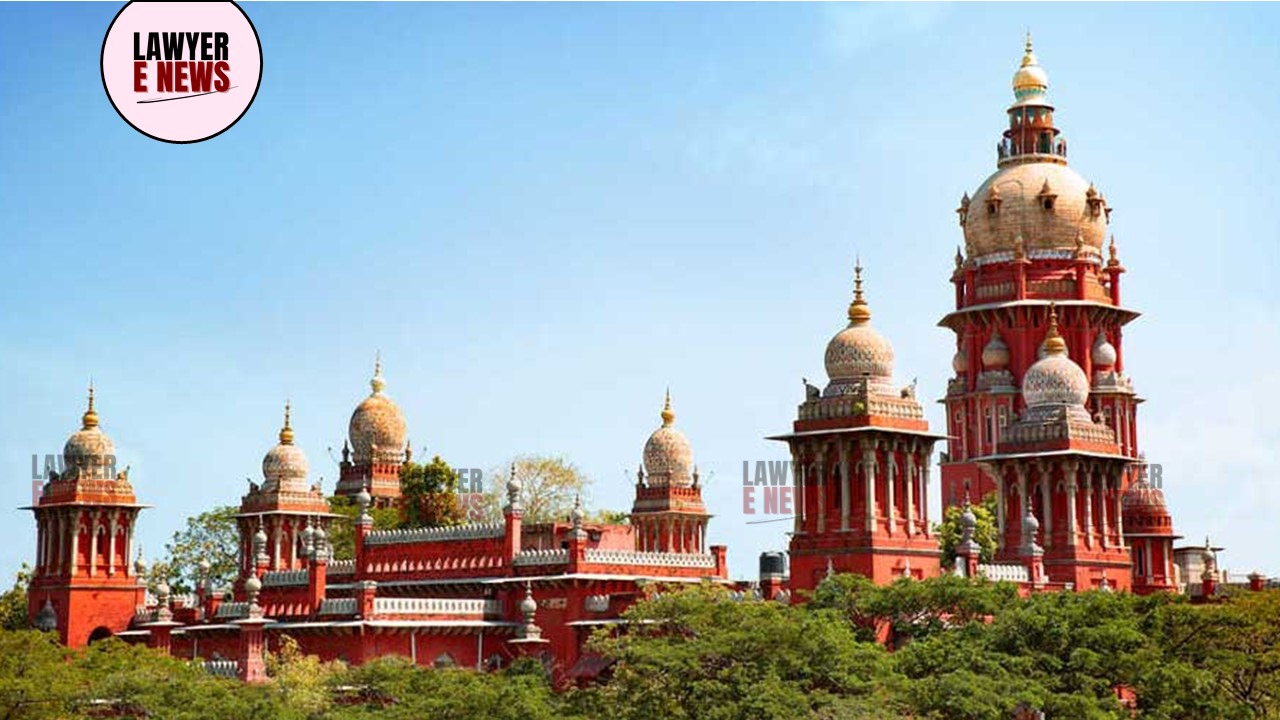-
by Admin
15 February 2026 5:01 PM



Madras High Court dismissed appeals by G.K.S. Technology Park Ltd., a developer, and upheld the orders passed by the Tamil Nadu Real Estate Appellate Tribunal (TNRERA) in disputes involving violations of the Real Estate (Regulation and Development) Act, 2016 (RERA). The case, which centered around the allocation of car parking slots, registration of a sale deed, and compensation for mental agony, also involved claims of violations of CMDA-approved plans by the developer.
The Court confirmed that the builder had acted in violation of the RERA Act and CMDA guidelines by exceeding the approved car parking capacity. It directed the developer to restore the car parking slot originally allotted to the complainant, allocate an alternative slot to another flat purchaser, and pay compensation for mental agony, defects, and other expenses.
The complainant, T. Aanandhi, had booked a flat in the builder’s real estate project and was allotted a specific car parking slot. However, the developer reallocated the slot to another flat purchaser. A subsequent CMDA inspection revealed that the builder had created 51 additional car parking spaces beyond the CMDA-approved plan, converting common areas, meter rooms, and open spaces into parking slots.
The Court, relying on the CMDA’s findings, observed that these unauthorized changes caused congestion and reduced access to common areas. It held that the builder’s actions violated RERA principles of good faith and transparency.
Mental Agony and Legal Expenses: Compensation Upheld
The complainant argued that the builder delayed the registration of her sale deed, prolonged the resolution of disputes, and caused significant mental agony and financial hardship. The adjudicating officer under RERA had awarded the complainant compensation of Rs. 5,97,867, which included:
• Rs. 5,00,000 for mental agony.
• Rs. 50,000 for rectification of construction defects.
• Rs. 22,867 for maintenance charges.
• Rs. 25,000 for legal expenses.
The High Court upheld the compensation, stating that the developer’s actions directly caused the complainant’s distress.
The Court addressed the issue of car parking allocation and held the builder responsible for the dispute. The Tribunal and the High Court found that the builder had intentionally avoided numbering car parking slots in agreements to exploit them later for financial gain.
The Court ordered the restoration of the original car parking slot (D-101) to the complainant and directed the builder to provide an alternative covered parking slot to the other flat purchaser. It held that the builder’s lack of transparency was against the spirit of RERA.
The Court strongly criticized the builder for failing to act in good faith, stating:
“The promoter alone is solely responsible for the dispute. Their actions breached the principles of fairness, transparency, and good faith under RERA. For the fault of the promoter, the complainant cannot be penalized.”
It further noted that the builder’s unauthorized actions in creating extra car parking slots for profit violated both the RERA Act and the approved CMDA plan.
The High Court dismissed all appeals filed by the builder and the complainant, confirming the Tribunal’s orders.
1. Car Parking Slot: The car parking slot originally allotted to the complainant (D-101) must be restored. The developer must provide an alternative covered parking slot to the other flat purchaser.
2. Compensation: The complainant is entitled to Rs. 5,97,867 as compensation for defects, maintenance charges, mental agony, and legal expenses. She is allowed to withdraw this amount with 8.35% interest per annum from the amount deposited with the Tribunal.
3. CMDA Action: The CMDA was directed to take action against the builder for unauthorized construction of additional parking slots.
The Court imposed no costs on either party.
Date of Decision: December 6, 2024
